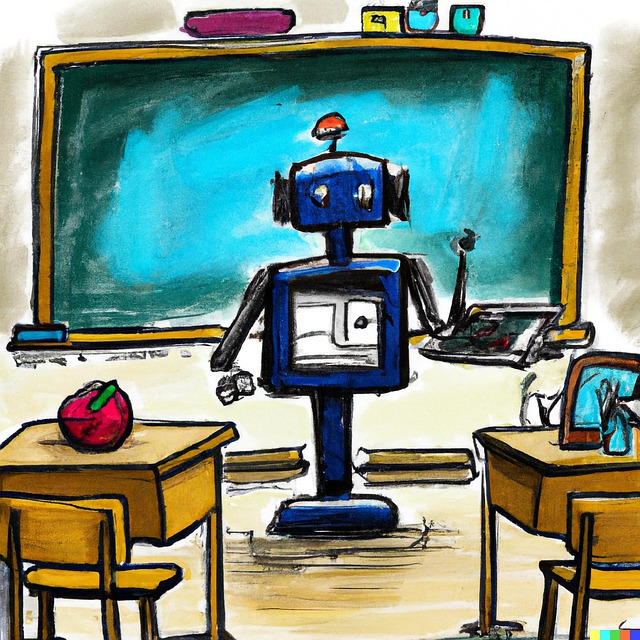# Exploring the Impact of AI Technology on Everyday Life and Its Role in Shaping Our Future
Artificial Intelligence (AI) has rapidly evolved from a niche area of research to an integral part of our daily lives. Its impact is felt across various sectors, influencing how we communicate, work, and even think. As AI technology continues to advance, understanding its implications for everyday life becomes increasingly crucial. This article delves into the transformative effects of AI, its current applications, and its potential to shape our future.
## The Ubiquity of AI in Daily Activities
In recent years, AI has seamlessly integrated into our daily routines, often without us even realizing it. Voice-activated assistants like Siri, Google Assistant, and Alexa have revolutionized how we interact with technology. These AI-driven tools enable users to perform tasks hands-free, from setting reminders to controlling smart home devices. The convenience offered by these applications demonstrates how AI enhances our productivity and efficiency in everyday activities.
Moreover, AI algorithms play a significant role in personalizing our online experiences. Streaming services such as Netflix and Spotify utilize machine learning to analyze user preferences, recommending content tailored to individual tastes. This level of personalization not only improves user satisfaction but also fosters deeper engagement with the platforms. As a result, consumers benefit from curated experiences that save time and enhance enjoyment.
Beyond entertainment, AI is transforming sectors like healthcare and education. In the medical field, AI-powered diagnostic tools assist healthcare professionals in identifying conditions more accurately and swiftly. For instance, machine learning algorithms can analyze medical imaging data, detecting anomalies that may be missed by the human eye. This capability not only improves patient outcomes but also optimizes resource allocation within healthcare systems.
## AI’s Role in Enhancing Workplace Efficiency
Transitioning to the workplace, AI technology is reshaping how businesses operate and employees perform their tasks. Automation has emerged as a key driver of efficiency, with AI systems taking over repetitive and mundane tasks. This shift allows employees to focus on more strategic and creative aspects of their jobs, fostering innovation and job satisfaction.
For instance, customer service departments are increasingly employing AI chatbots to handle routine inquiries. These bots can provide instant responses, thus reducing wait times and improving customer satisfaction. By delegating simple tasks to AI, companies can allocate human resources to complex issues that require emotional intelligence and critical thinking. This not only enhances operational efficiency but also allows businesses to provide a higher level of service.
Additionally, AI is proving invaluable in data analysis and decision-making processes. Organizations can leverage AI tools to analyze vast amounts of data quickly and accurately, uncovering insights that drive strategic initiatives. Predictive analytics, powered by AI, enables businesses to anticipate market trends and consumer behavior, allowing for more informed decision-making. As a result, companies that embrace AI technology often gain a competitive edge in their respective industries.
## The Future Landscape Shaped by AI
Looking ahead, the potential of AI technology to shape our future is both exciting and daunting. As advancements continue, ethical considerations surrounding AI will become increasingly important. The rise of autonomous systems, for example, raises questions about accountability and safety. Ensuring that AI systems operate transparently and ethically will be crucial in gaining public trust.
Moreover, the integration of AI into various sectors could lead to significant shifts in the job market. While AI will create new roles and opportunities, it may also render certain jobs obsolete. Preparing the workforce for this transition is essential, necessitating a focus on reskilling and upskilling initiatives. Educational institutions and employers must collaborate to equip individuals with the skills needed to thrive in an AI-driven economy.
Furthermore, the societal implications of AI cannot be overlooked. As AI systems become more sophisticated, issues related to privacy and data security will take center stage. Striking a balance between leveraging AI for innovation and safeguarding personal information will be a challenge that policymakers and tech leaders must address. Developing robust regulations and ethical frameworks will be vital to ensure that AI benefits society as a whole.
## Conclusion: Embracing the AI Revolution
In summary, AI technology is profoundly influencing our everyday lives, enhancing efficiency, personalization, and decision-making across various sectors. As we navigate this AI-driven landscape, understanding its implications is essential for individuals, businesses, and policymakers alike. Embracing the opportunities presented by AI while addressing the associated challenges will be key to shaping a future where technology serves humanity positively.
As we stand on the brink of an AI revolution, it is imperative to foster an environment that promotes innovation while prioritizing ethical considerations. By doing so, we can harness the power of AI to create a future that is not only technologically advanced but also equitable and sustainable. The journey ahead may be complex, but with thoughtful engagement and proactive measures, we can ensure that AI technology enriches our lives and shapes a brighter tomorrow.











